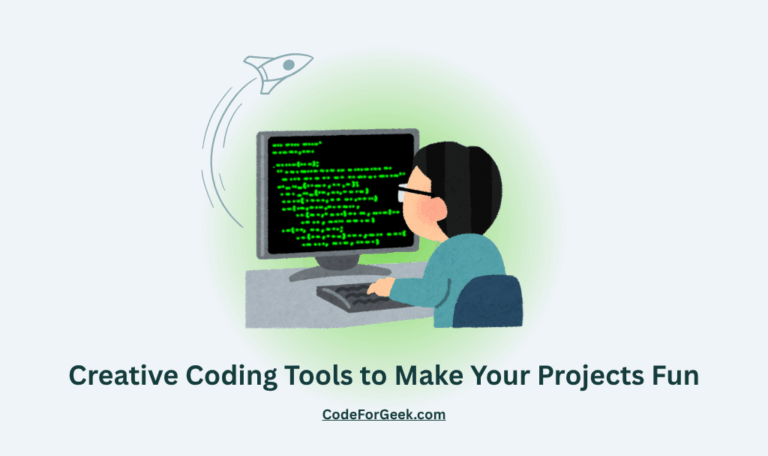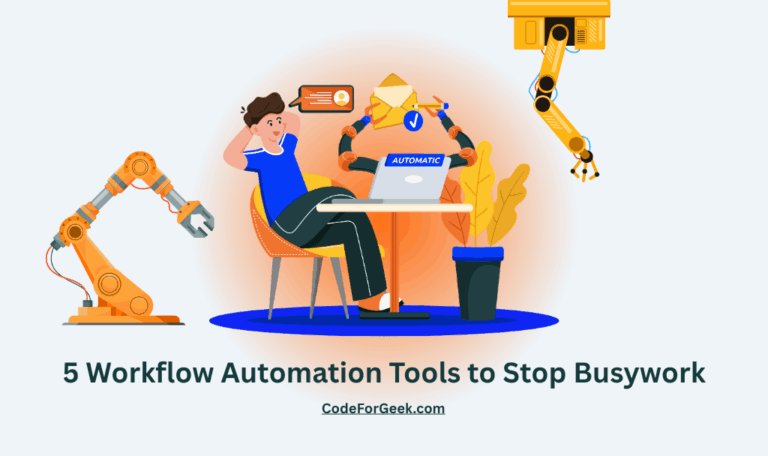New to Rust? Grab our free Rust for Beginners eBook Get it free →
Top 10 Zendesk Alternatives for Customer Support (2025)
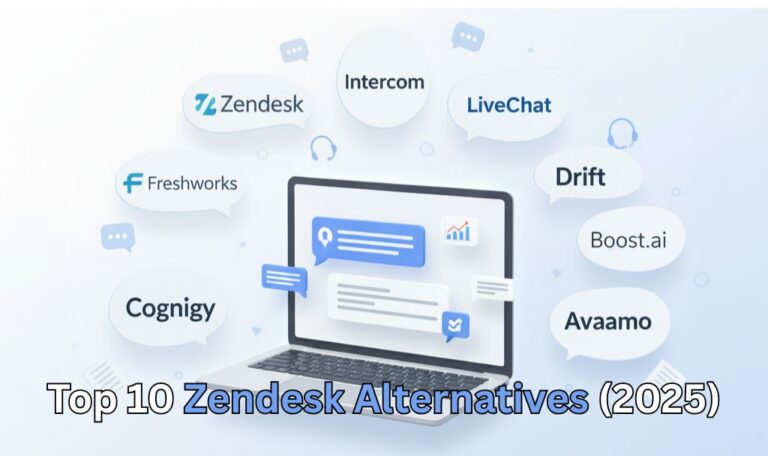
Here are the top 10 Zendesk alternatives to tackle the problems users are facing with Zendesk in 2025.
This list is made to give you straight answers, no fluff, no filler. I have kept everything short, clear, and to the point, so you can easily make your final decision.
Why We Are Looking for Zendesk Alternatives
I have been using Zendesk for a long time, and while it is a good platform, people on the internet have started raising serious concerns about it. As Zendesk has grown into a massive brand with a huge customer base, it’s becoming harder for them to address all the issues users are facing.
Here are some of the new and critical concerns about relying entirely on Zendesk in 2025:
- Rising Costs: Zendesk keeps increasing prices and locks users into “annual commitments” for stable rates. The starting price is around $55/month, and professional plans can reach $115 per user/month, which is not ideal for startups.
- Limited Customer Support: Ironically, Zendesk’s own support isn’t great. Many users complain about not being able to contact a real person, even after spending thousands per year.
- Complex Setup: Getting started with Zendesk can take weeks or even months (difficult for non-technical teams).
- Hidden Costs & Add-ons: Essential features often require costly add-ons, making the total price higher than expected.
- AI & Workflow Issues: Zendesk’s AI can misclassify tickets, and complex workflows slow teams down instead of helping them.
- Slow Support Response: Many users report delayed responses and unresolved issues.
So here are its best alternatives for better value, simplicity, and support.
Top 10 Zendesk Alternatives (2025)
Intercom
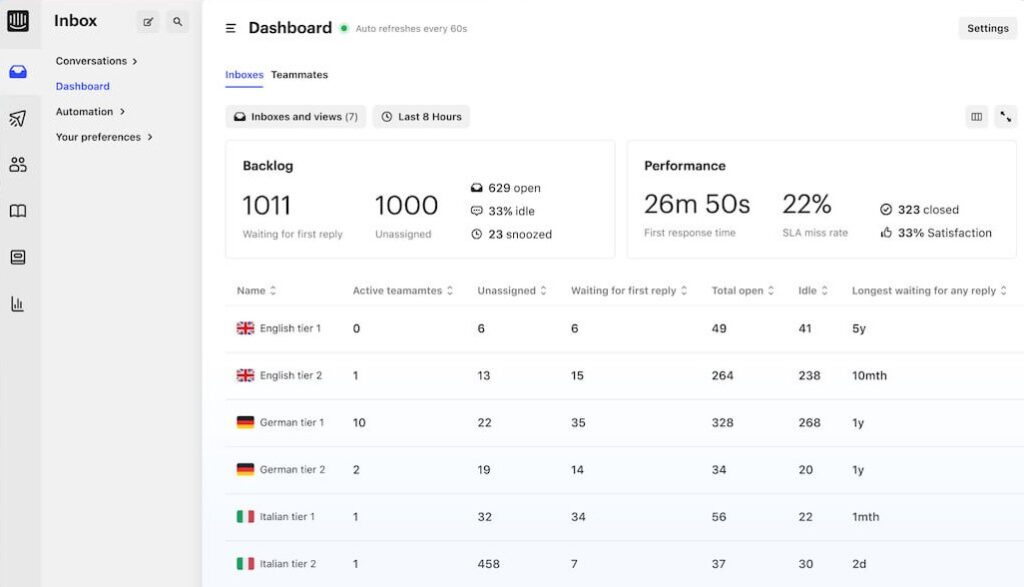
Intercom is as popular as Zendesk in the customer support system space. Among modern tools, Intercom stands out because it shifts the focus from tickets to conversations. It’s a platform designed to keep support inside the product, not hidden in a portal. It combines live chat, proactive outreach, and AI-driven automation in one place. The result is a system that feels more personal and less transactional, which is why many SaaS and digital-first companies prefer it.
Key Features:
- Messenger: In-app and web chat widget with user data and context.
- Fin AI Agent: GPT-4 powered bot that answers FAQs from your knowledge base.
- Outbound Campaigns: Targeted messages for onboarding and updates.
- Shared Inbox: Unified email and chat inbox with assignments.
- Knowledge Base: Help centre and product tours to reduce ticket load.
Pros:
- Real-Time Engagement: Excellent in-app chat experience.
- Personalisation: Segments and targets messages by user data.
- Unified Platform: Handles both support and customer outreach.
- Clean Interface: Easy for teams to learn and use daily.
- Strong Ecosystem: Integrates with CRMs and analytics tools.
Cons:
- High Pricing: Per-seat costs and usage fees rise quickly.
- Unpredictable Billing: AI resolution charges can spike costs.
- Limited for Small Teams: Overkill for startups or small businesses.
- Marketing Gaps: Advanced marketing features require third-party tools.
Pricing:
| Plan | Price (per seat/month) | Core Features |
|---|---|---|
| Essential | $29 | Messenger, Fin AI Agent, shared inbox, help centre, reports, etc. |
| Advanced | $85 | All Essential + workflows, multiple inboxes, private/multilingual help centre, etc. |
| Expert | $132 | All Advanced + SSO, HIPAA, SLAs, multibrand support, etc. |
Best For:
Intercom is best for mid-sized and enterprise SaaS companies that want to connect users directly inside apps and websites. It is ideal for teams that need support, onboarding, and customer engagement in one system, provided they have the budget.
Freshworks (Freshdesk and Freshchat)
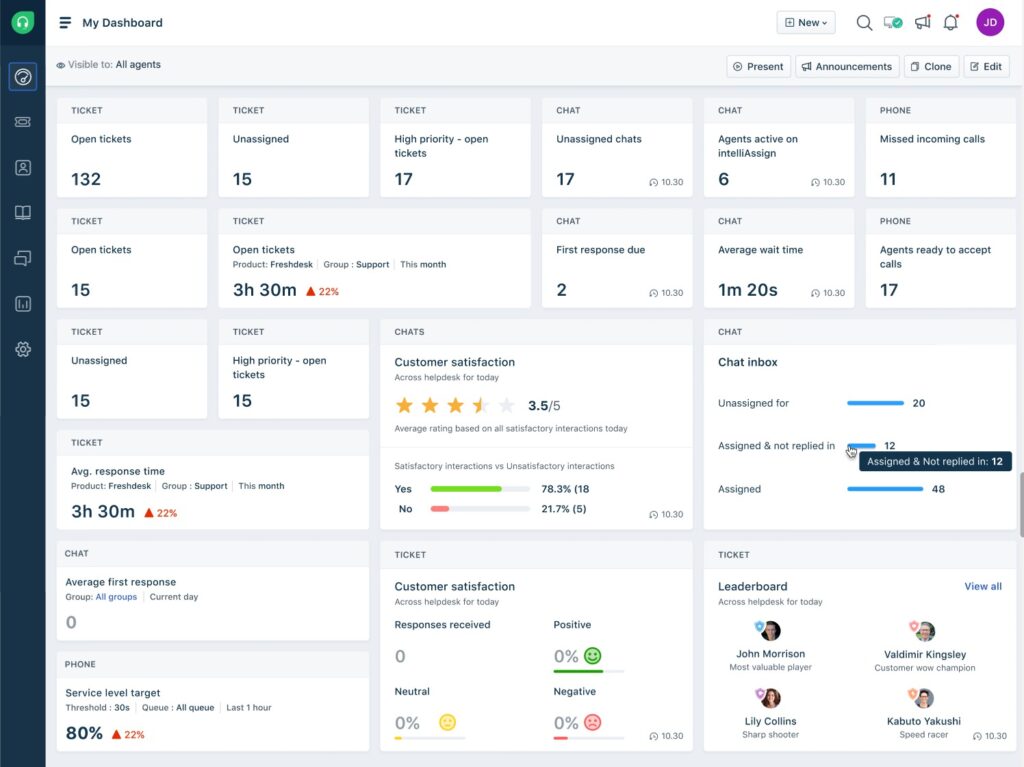
For this list, I am researching Freshworks as a simpler alternative to older helpdesk systems. Freshdesk and Freshchat are built to be quick to set up and easy to use, which makes them attractive for teams that do not want to spend weeks on training. The pricing is clear, the UI is clean, and the AI assistant called Freddy helps small teams get more done without adding complexity.
Key Features:
- Omnichannel Inbox: Collects email, chat, and social messages into one place.
- Freddy AI: Suggests replies, automates workflows, and powers chatbots.
- Knowledge Base: Customisable help centre with FAQ suggestions.
- Collaboration Tools: Internal notes and automated rules to manage tickets.
- Unified View: CRM-lite profiles showing history, sentiment, and CSAT.
Pros:
- Easy Setup: Teams can go live in days without heavy onboarding.
- Affordable Pricing: Free plan and low-cost tiers for startups.
- Friendly UI: Clean dashboard that is simple for agents to navigate.
- All-in-One Option: Freshdesk, Freshchat, and Freshcaller work together smoothly.
Cons:
- Limited Customisation: Less flexible for complex enterprise workflows.
- Multiple Modules: Using different Freshworks products can feel fragmented.
- Performance Lags: Small slowdowns during heavy use.
Pricing:
| Plan | Price (per agent/month) | Core Features |
|---|---|---|
| Growth | $15 | Ticketing, inbox, tasks, customer portal, etc. |
| Pro | $49 | Multilingual support, custom objects, advanced reporting, etc. |
| Pro + AI | $78 | All Pro + Freddy AI Copilot and AI Insights, etc. |
| Enterprise | $79 | Advanced security, audit logs, workflows, etc. |
Best For:
Freshworks is best for startups and SMBs that want to launch support quickly with low cost and minimal training. It is also well-suited for e-commerce and education teams that need multichannel support without enterprise complexity.
LiveChat
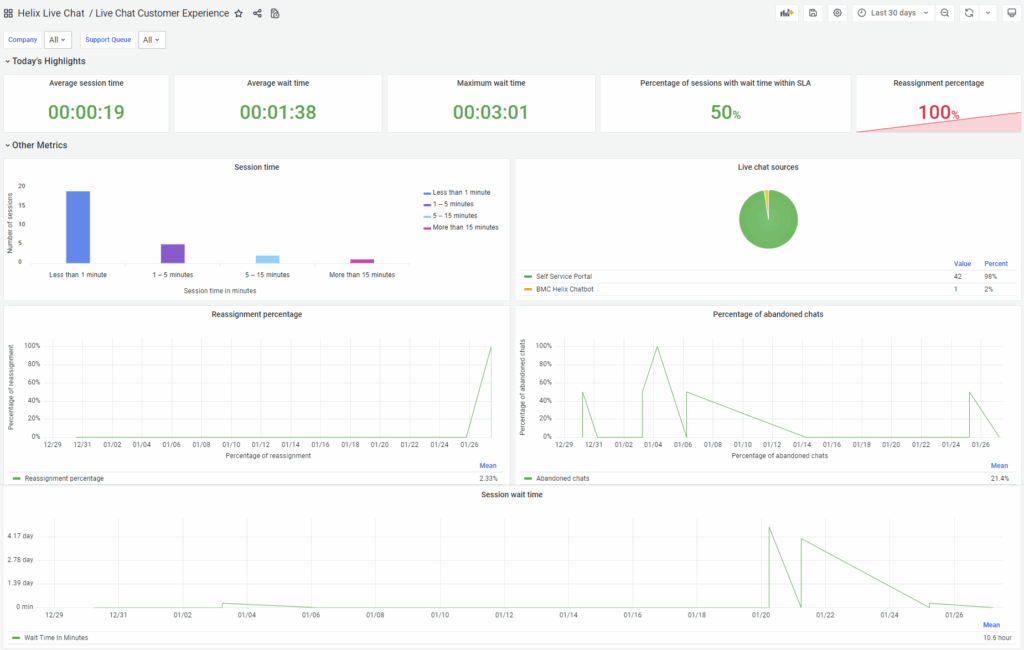
Next tool on the list is LiveChat, which focuses only on real-time conversations. Unlike full helpdesk platforms, it is built as a specialised chat solution that is fast, simple, and highly customisable. It is a good option when you want to connect instantly with visitors on your website or app, without the overhead of ticket-heavy systems.
Key Features:
- Real-Time Chat: Smooth widget with typing preview and user context.
- Agent Productivity Tools: Canned responses, chat routing, and multi-chat handling.
- Customisable Widget: Brand colours, logos, and triggers for proactive chats.
- Chatbot Integration: Bots to handle FAQs before escalating to agents.
- Analytics: Post-chat surveys and dashboards to track agent performance.
Pros:
- Excellent Chat UX: Optimised for real-time conversations.
- Quick Setup: Easy script or plugin installation for websites.
- Conversion Triggers: Smart greetings like “Need help?” at checkout.
- Flexible Branding: Fully customisable chat design.
Cons:
- Not a Full Helpdesk: Limited tools for complex ticket workflows.
- Costs Rise With Agents: Pricing can grow quickly per seat.
- Bot Add-On: AI chatbot is a separate service.
- Lower Plans Limited: Entry tiers restrict features and history.
Pricing:
| Plan | Price (per person/month) | Core Features |
|---|---|---|
| Starter | $19 | Basic chat widget, text intelligence, 60-day history, etc. |
| Team | $49 | Unlimited chat history, customisation, reporting, etc. |
| Business | $79 | Advanced reporting, staffing prediction, SMS support, etc. |
| Enterprise | Custom | White-label, SSO, HIPAA compliance, dedicated manager, etc. |
Best For:
LiveChat is best for ecommerce stores, SaaS products, and B2B teams that want instant conversations to support customers or drive sales. It is often used alongside a helpdesk for immediate engagement while tickets handle more complex cases.
LiveChatAI
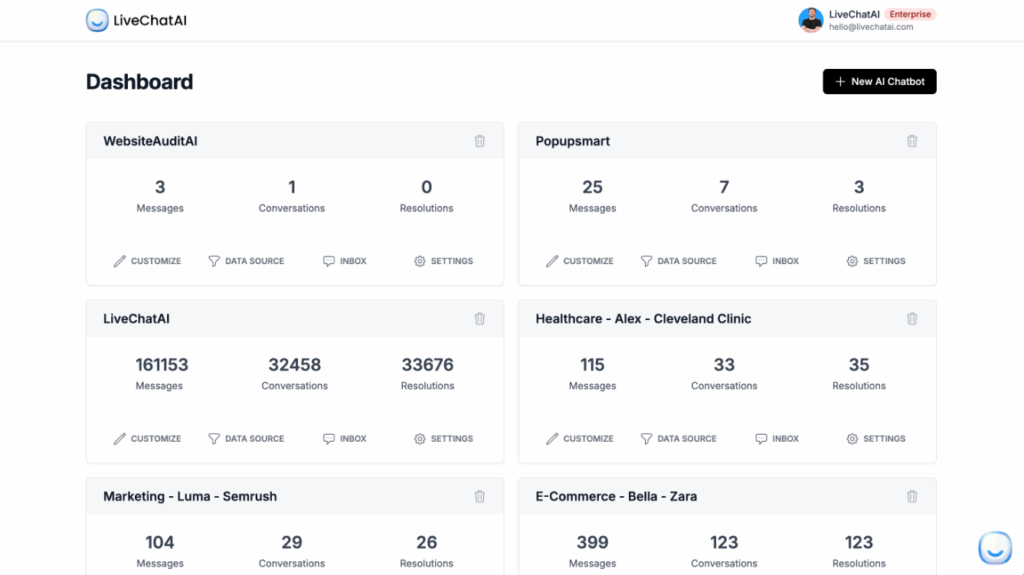
No doubt, LiveChat is excellent for real-time human chat, but its AI features are not built in. To add automation, you need a separate chatbot or third-party service. LiveChatAI solves this limitation by combining AI-driven automation with smooth human fallback in one platform. It can handle up to 70% of routine queries instantly, while complex issues are escalated to a live agent without losing conversation context.
Key Features:
- Dual Response: AI resolves FAQs and passes complex queries to humans.
- Seamless Handoff: Transfers to your team via Intercom, WhatsApp, SMS, or email.
- Knowledge Training: Learns from FAQs, documents, and website content.
- Multi-Channel Deployment: Works on websites, WhatsApp, Shopify, Slack, and WordPress.
- AI Actions & API: Can reset passwords, check orders, or book appointments.
- Analytics: Monitors resolution rates, response times, and satisfaction.
Pros:
- Balanced Support: Automation plus human backup keeps quality high.
- Cost Savings: Reduces repetitive queries so agents focus on complex cases.
- User Experience: Smooth transition between AI and human agents.
- Channel Reach: Covers web chat and popular messaging apps.
- Quick Setup: Templates and knowledge uploads make deployment faster.
Cons:
- Outsourced Handoff: Using external agents may raise quality or privacy concerns.
- Pricing Complexity: Costs vary by usage and added services.
- Integration Effort: Requires setup for CRM or workflow connections.
- Smaller Ecosystem: Newer platform with fewer third-party references.
Pricing:
| Plan | Price | Core Features |
|---|---|---|
| Free | Free | 250 messages, 1 chatbot, live chat, basic analytics, etc. |
| Basic | $39 | 4,000 messages, 1 chatbot, live chat, contacts, etc. |
| Pro | $89 | 10,000 messages, 2 chatbots, AI actions, API access, etc. |
| Advanced | $189 | 15,000 messages, 5 chatbots, WhatsApp integration, advanced models, etc. |
| Expert | $389 | 20,000 messages, 10 chatbots, more seats, advanced analytics, remove branding, etc. |
Best For:
LiveChatAI is best for businesses that want automation without sacrificing the human touch. It suits e-commerce, SaaS, and financial services that need 24/7 support with smooth AI-human collaboration.
Drift (now part of Salesloft)
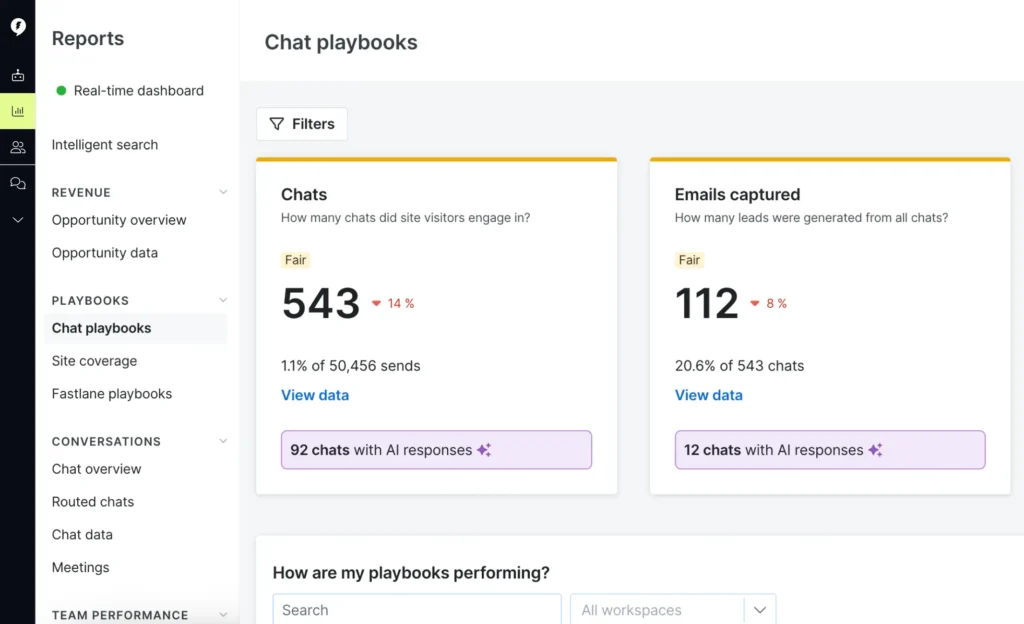
Moving forward, Drift is different from traditional support platforms because it is built for sales and marketing. Instead of managing tickets, it focuses on turning website visitors into qualified leads. Drift replaces static forms with chatbots that engage prospects, ask qualifying questions, and connect them directly to sales reps. If your priority is generating pipeline, Drift is designed for that exact purpose.
Key Features:
- AI Chatbot Playbooks: Predefined scripts that qualify leads by asking about budget, needs, or timeline.
- Live Handoff: Connects hot prospects to the right sales rep in real time.
- Meeting Scheduler: Lets users book demos or calls directly inside the chat.
- Company Intel: Identifies visitor industry and firmographics for personalised greetings.
- CRM Integrations: Syncs with Salesforce, HubSpot, and marketing automation tools.
Pros:
- Boosts Conversions: Replaces slow forms with instant conversations.
- Sales Acceleration: Quickly connects qualified leads to sales reps.
- Integrated Scheduling: Eliminates back-and-forth for demo bookings.
- Enterprise Ecosystem: Strong integrations for CRM and marketing workflows.
Cons:
- Not Designed for Support: Lacks advanced ticketing or helpdesk features.
- High Pricing: Premium plans are expensive for smaller teams.
- Hidden Costs: Advanced features like routing or A/B testing sit on higher tiers.
- Sales-Only Focus: Limited use for customer service functions.
Pricing:
| Plan | Price (annual billing) | Core Features |
|---|---|---|
| Premium | $2,500+ | Live chat, meetings, chatbots, notifications, etc. |
| Advanced | Custom | Adds advanced routing, A/B testing, and support options, etc. |
| Enterprise | Custom | Tailored enterprise-level deployment and features, etc. |
Best For:
Drift is best for B2B companies with significant inbound traffic and structured sales teams. It works particularly well for SaaS, enterprise software, and consulting businesses that need real-time engagement to convert leads into opportunities.
DeepConverse
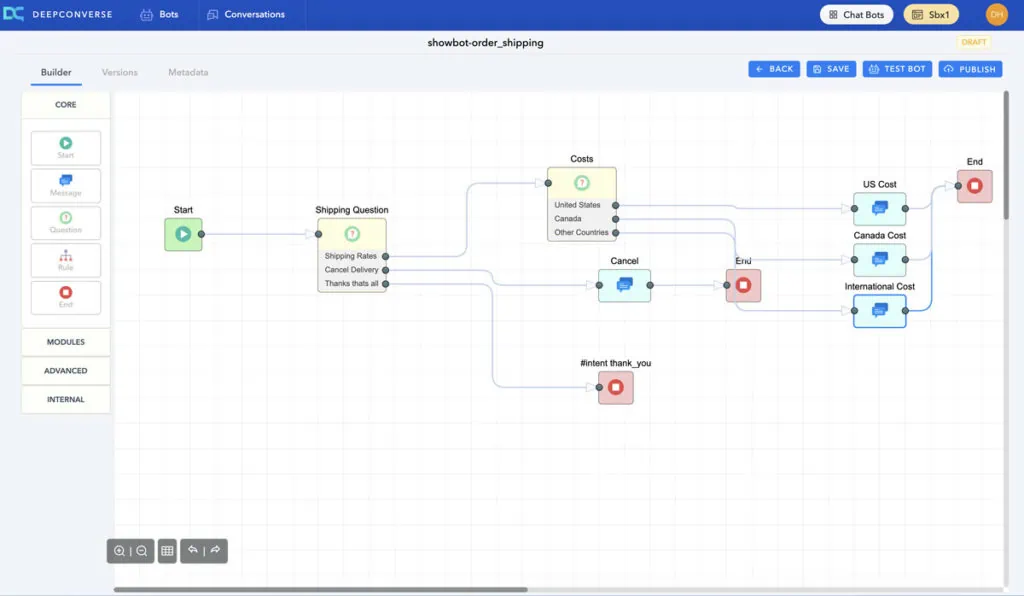
Next on the list is DeepConverse, a chatbot platform designed to work smoothly with helpdesks like Zendesk and Salesforce. It focuses on resolving repetitive support queries through AI-powered responses and guided flows. The setup is straightforward, even for non-technical teams, which makes it appealing for companies that want automation without heavy coding or long implementation cycles.
Key Features:
- Helpdesk Integration: Connects natively with Zendesk and Salesforce for tickets and knowledge articles.
- Generative Answer Engine: Pulls accurate answers directly from FAQs and manuals.
- Interactive Guides: Step-by-step workflows for troubleshooting and Tier 1 automation.
- No-Code Builder: Drag-and-drop interface to design chatbot flows without coding.
- Analytics: Tracks deflection rates, resolution quality, and satisfaction scores.
Pros:
- Plug-and-Play: Works seamlessly with existing helpdesk tools.
- Fast Deployment: Easy setup with templates and no-code builder.
- High Automation: Handles repetitive queries and reduces agent workload.
- Multi-Channel Support: Works on web, mobile, and social platforms.
Cons:
- Zendesk-Centric: Best for Zendesk users; others may require more setup.
- Smaller Market Presence: Less recognition compared to larger vendors.
- Mobile SDK Gaps: Limited standalone mobile SDK options.
Pricing:
| Plan | Price | Core Features |
|---|---|---|
| Base Plan | ~$52/month | Zendesk integration, knowledge base answers, templates, etc. |
| Custom | Quote-based | Advanced flows, analytics, integrations, etc. |
Best For:
DeepConverse is best for companies already using Zendesk or Salesforce that want an AI layer to automate repetitive queries. It suits SaaS, ecommerce, and fintech firms with a knowledge base that can be leveraged for fast deflection.
Avaamo
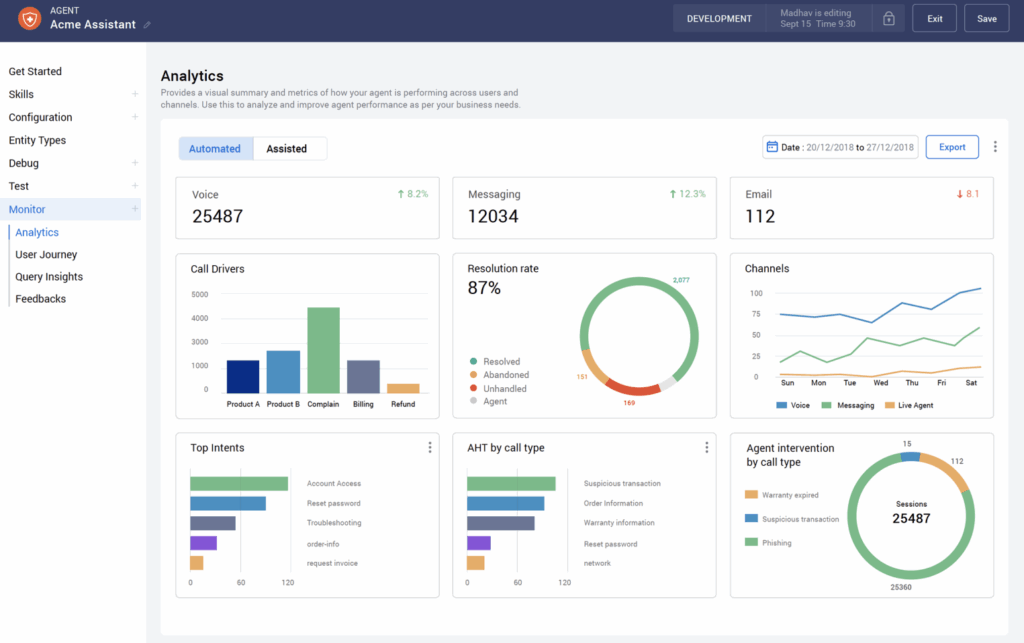
If you are looking for a vertical-specific AI model, Avaamo is a great choice. It’s an enterprise-grade conversational AI platform built for complex industries like banking, healthcare, and insurance. Unlike generic chatbot tools, Avaamo offers industry-tailored AI models, strong compliance, and robust data security. It’s designed to manage large-scale, multi-turn conversations across both chat and voice, making it a reliable choice for businesses that prioritise accuracy and security.
Key Features:
- Vertical AI Models: Pre-trained for finance, healthcare, insurance, and HR.
- No-Code Builder: Visual designer to create workflows without coding.
- Multilingual Support: 100+ languages and dialects for global deployments.
- Voice + Chat: Works across SMS, IVR, mobile, and web channels.
- Enterprise Integrations: 1,000+ connectors for CRM, ERP, ITSM, and more.
- Security & Compliance: SOC2, HIPAA, and GDPR ready with role-based access.
Pros:
- Industry-Specific Expertise: Comes ready with models for regulated sectors.
- Strong Automation: Handles complex queries with high accuracy.
- Flexible Deployment: Cloud or on-premise options.
- Comprehensive Analytics: Tracks containment, CSAT, and intent failures.
- Scalable: Supports large enterprises with high volumes.
Cons:
- Premium Pricing: Aimed at large enterprises only.
- Complex Setup: Deep integrations require technical expertise.
- Steep Learning Curve: Non-technical teams may need support.
- Cross-Channel Context: Conversations do not always carry over seamlessly.
Pricing:
| Plan | Price | Core Features |
|---|---|---|
| Custom | Quote-based | Enterprise deployment, vertical AI models, omnichannel support, etc. |
Best For:
Avaamo is best for large enterprises in regulated industries such as banking, insurance, and healthcare. It is suited for organisations that need secure, scalable, multilingual AI with deep integrations and compliance at the core.
Boost.ai
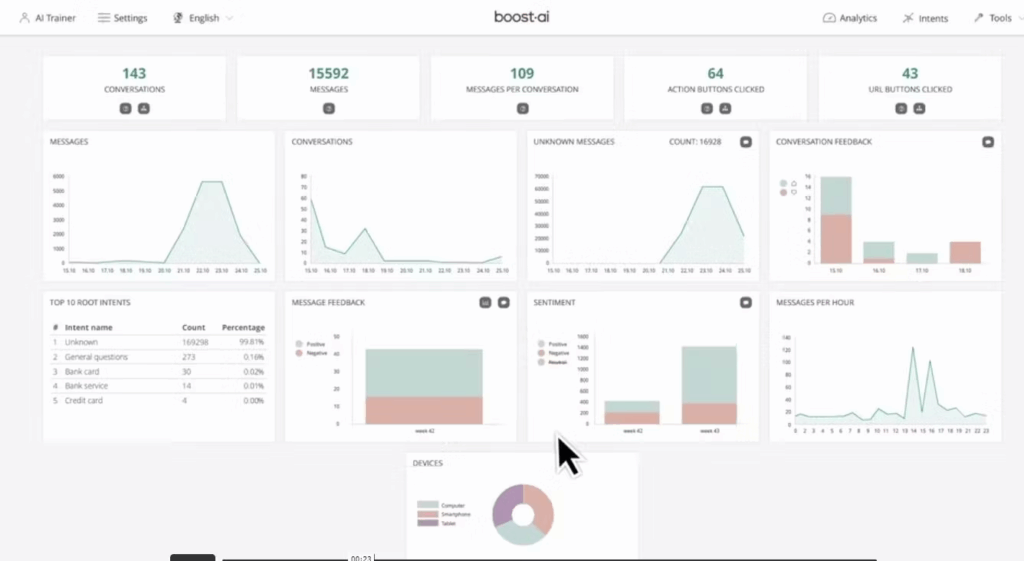
Now let’s discover Boost.AI. Like Avaamo, it’s enterprise-grade, but instead of focusing on industry-specific models, Boost.ai excels at creating intelligent virtual agents for customer engagement. While Avaamo emphasises vertical-specific AI, compliance, and data security, Boost.ai stands out for its hybrid AI system, blending rule-based precision with generative AI.
Key Features:
- Hybrid AI: Combines rules with NLU and large language models for precise control.
- No-Code Builder: Slack-style interface for training intents and flows.
- Self-Learning AI: Improves continuously from agent interactions.
- Omnichannel Support: 35+ channels and 100+ languages supported.
- Compliance: ISO27001, GDPR, SSO, and on-premise options.
- Agent Assist: Suggests replies and context for human agents in real time.
Pros:
- High Accuracy: Delivers reliable responses in regulated industries.
- User-Friendly: Simple interface for non-technical staff.
- Fast ROI: Pre-trained content helps bots go live quickly.
- Scalable: Handles thousands of simultaneous conversations.
- Enterprise Focus: Strong support and co-creation with clients.
Cons:
- Premium Cost: Aimed at large enterprises with bigger budgets.
- Interface Gaps: Admin tools for large intent sets can feel clunky.
- Language Coverage Limits: Some niche languages require extra work.
- Mobile UI Issues: Minor glitches reported on certain iOS apps.
Pricing:
| Plan | Price | Core Features |
|---|---|---|
| Custom | Quote-based | Hybrid AI, no-code builder, compliance features, omnichannel support, etc. |
Best For:
Boost.ai is best for banks, insurers, telcos, and public sector organisations that need secure and compliant AI. It suits enterprises that want both control and scalability, with high accuracy and reliability across large customer bases.
Cognigy
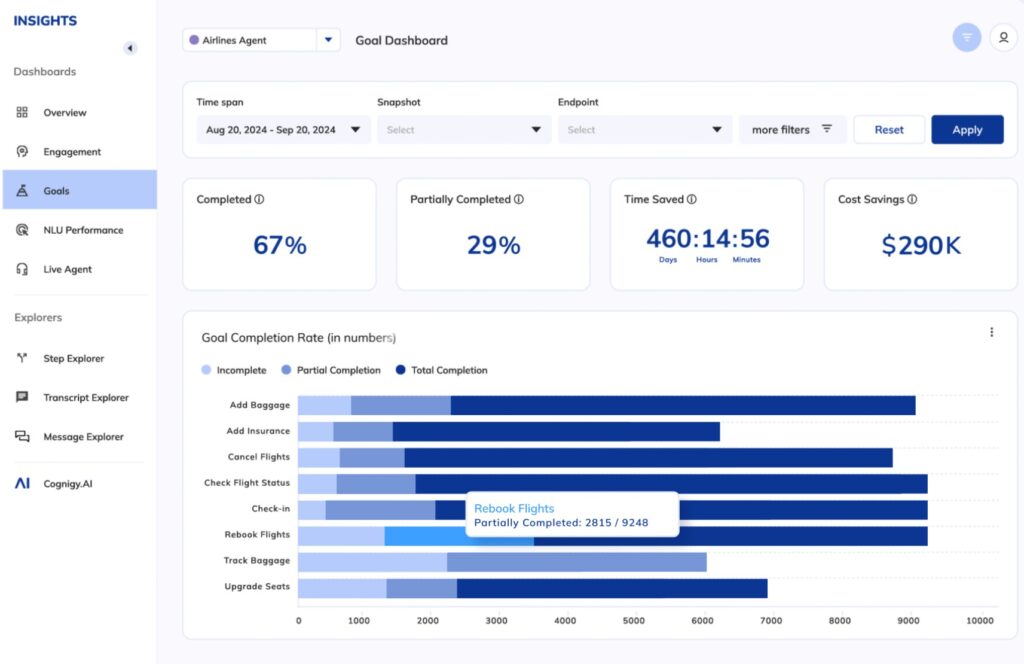
Next on my list is Cognigy, a conversational AI platform built for enterprises that need advanced automation. It is designed for both customer service and internal support, with strong integration options and a low-code builder. Cognigy is well known for handling complex workflows and supporting both chat and voice channels at scale.
Key Features:
- Low-Code Builder: Visual editor to design conversation flows without coding.
- Omnichannel Support: Works on chat apps, web, voice, and messaging platforms.
- Advanced NLU: Detects intents in 100+ languages with high accuracy.
- Enterprise Integrations: Connects to CRM, ERP, IT systems, and APIs.
- Human Handoff: Seamless transfer to agents with full context.
- Analytics: Dashboards to track performance, drop-offs, and sentiment.
Pros:
- Highly Flexible: Can build anything from simple FAQs to complex workflows.
- Enterprise-Grade: Scales for high-volume global organisations.
- Voice Support: Strong speech recognition and text-to-speech features.
- Multi-Language: Supports localisation for international use.
- Compliance Ready: ISO, SOC 2, HIPAA, and GDPR certifications.
Cons:
- High Pricing: Enterprise-level cost, not suitable for small businesses.
- Learning Curve: Requires technical skill for advanced use.
- Resource Intensive: Full deployment needs planning and team effort.
- Limited Community: Smaller knowledge base compared to bigger vendors.
Pricing:
| Plan | Price | Core Features |
|---|---|---|
| Custom | Quote-based | Low-code builder, omnichannel support, enterprise integrations, analytics, etc. |
Best For:
Cognigy is best for large enterprises that need scalable and customisable AI. It fits industries like banking, telecom, airlines, and healthcare that require secure, multilingual, and workflow-heavy automation.
Aisera
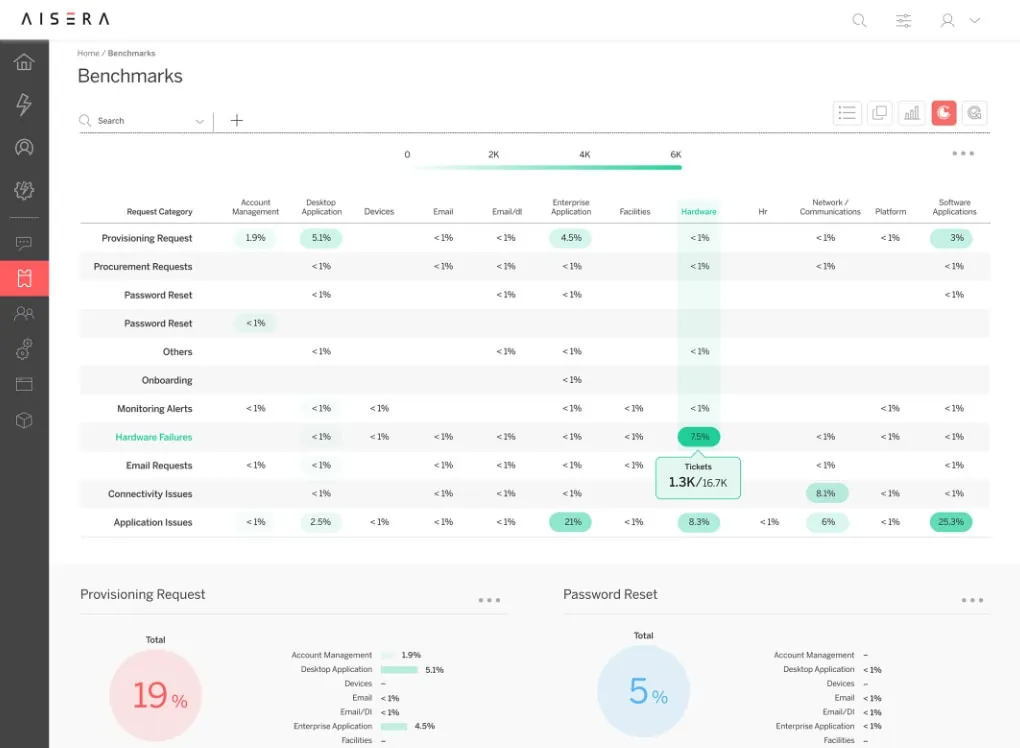
Aisera positions itself as more than just a chatbot. It works as an AI service desk that automates repetitive tasks across IT, HR, and customer support. The platform integrates with existing tools instead of replacing them, making it useful for enterprises that already run systems like Zendesk, ServiceNow or Salesforce. Its focus is on high auto-resolution, workflow execution, and acting as a co-pilot for agents.
Key Features:
- Unified AI Service Desk: One virtual agent for IT, HR, and support requests.
- Workflow Automation: Handles tasks like password resets and license provisioning.
- Multi-Channel Support: Works across chat, voice, email, and collaboration apps.
- Knowledge Search: AI-driven search across FAQs, tickets, and documents.
- Agent Assist: Suggests next-best actions and answers to live agents.
- Integrations: 75+ certified connectors with ITSM, CRM, and IAM systems.
Pros:
- High Auto-Resolution: Resolves up to 80% of routine queries.
- Cross-Department Use: Consolidates IT, HR, and support into one AI layer.
- Vendor-Agnostic: Works alongside existing platforms.
- Fast Deployment: Pre-trained intents allow quick setup.
- Scalable: Expands coverage with minimal retraining.
Cons:
- Enterprise Pricing: Suited only for large organisations.
- Implementation Effort: Requires setup and data preparation.
- Admin Learning Curve: Workflow and analytics need training.
- Monitoring Needed: AI-driven actions require oversight to build trust.
Pricing:
| Plan | Price | Core Features |
|---|---|---|
| Custom | Quote-based | Unified AI desk, workflow automation, multi-channel support, integrations, etc. |
Best For:
Aisera is best for large enterprises and fast-growing organisations with heavy service desk demand. It fits IT, HR, and customer support teams that need to automate repetitive tasks, improve efficiency, and scale without adding headcount.
Zendesk Alternatives Comparison Table
This table sums up the above content in a simple way, highlighting each tool’s key strengths, ideal users, and starting prices.
| Tool | Best For | Key Strength | Pricing Starts At |
|---|---|---|---|
| Intercom | SaaS & digital-first companies | In-app chat + AI-driven automation | $29/seat/mo |
| Freshworks | Startups & SMBs | Easy setup and affordable all-in-one support | Free / $15/agent/mo |
| LiveChat | E-commerce & SaaS | Real-time human chat and conversion triggers | $19/agent/mo |
| LiveChatAI | Businesses needing AI + human blend | AI chat automation with seamless human fallback | Free / $39/mo |
| Drift (Salesloft) | B2B sales teams | Lead qualification and instant sales engagement | ~$2,500/yr |
| DeepConverse | Zendesk/Salesforce users | Plug-and-play chatbot for ticket deflection | ~$52/mo |
| Avaamo | Enterprises in regulated sectors | Vertical AI for banking, healthcare, insurance | Custom |
| Boost.ai | Banking, insurance, public sector | Hybrid AI with high accuracy and control | Custom |
| Cognigy | Large enterprises | Advanced voice + chat automation | Custom |
| Aisera | IT, HR, & customer service | Unified AI service desk with automation | Custom |

